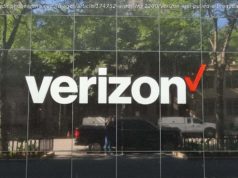Today the FCC voted to officially propose an order that would eliminate net neutrality rules as we know them. To be clear, the rules are not being adopted..
Today the FCC voted to officially propose an order that would eliminate net neutrality rules as we know them. To be clear, the rules are not being adopted today — that vote will be about three months from now, during which time the proposal is open for comment.
“Today, we propose to repeal utility-style regulation of the Internet, ” Chairman Ajit Pai said in a statement. “We propose to return to the Clinton-era light-touch framework that has proven to be successful. And we propose to put technologists and engineers, rather than lawyers and accountants, at the center of the online world.”
That technologists and engineers overwhelmingly support net neutrality seems lost on the chairman. There is hardly an internet-based company that hasn’ t come out in favor of the rules as they stand; more than 800 startups signed an open letter saying just that in April, and hundreds more have been added since.
It would also remove the “general conduct” rule and reclassify mobile broadband so it won’ t be a telecommunication service either. That’s all sort of moot, though, because without the authority of Title II, the rules aren’ t worth the paper they’ re printed on.
But this isn’ t the end of the process; we’ re smack dab in the middle. How it works is a little convoluted, but that’s sort of the rule when it comes to making (or unmaking) federal regulations.
First comes the “notice of proposed rulemaking, ” or NPRM, which lays out what they’ d like to do and identifies areas where they need input or data. That’s what there have been more than a million comments on over the last month or so.
Next comes a three-month comment period, during which we can submit notes of support or opposition to the rule — and they can be a little more specific now that the questions in the NPRM have been answered. Note that the FCC asked for this input and will check it out, but they’ re not obliged in any way to change the rule or their votes based on public opinion.
At some point in the next couple of months the FCC will vote on whether to adopt the rule. At that point there should be a date set for when the rule will go into effect. If anyone wants to challenge the rule on legal grounds, this is their chance; it happened with the original Open Internet Order, though the challenges were struck down and the rule took effect as planned.
Senator Brian Schatz, with whom I spoke on this topic ahead of the NPRM’s release, issued a statement calling the chairman to task:
The next few months will be just as fierce a battle as the last one, you can be sure of that. And as Commissioner Clyburn said earlier this week at Disrupt, “net neutrality is doomed if we remain silent.”
I’ ll update this story with the best way to comment and make your voice heard as soon as that information is available. I’ ll also be looking closely at the proposal itself as soon as it is made publicly available.






